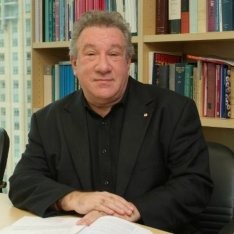New Press Council chair wants to ‘reset relationship’ with News Corp
 The new head of the press regulator David Weisbrot has vowed to try and “reset” its tense relationship with the country’s biggest publisher News Corp, signalling it may adjust the advice it gives when delivering adjudications.
The new head of the press regulator David Weisbrot has vowed to try and “reset” its tense relationship with the country’s biggest publisher News Corp, signalling it may adjust the advice it gives when delivering adjudications.
In recent months News Corp paper The Australian has been an ardent critic of the The Australian Press Council (APC), but new chair Weisbrot said his appointment is an opportunity for the two sides to refresh their relationship.
“My appointment has provided an opportunity for us all to have a deep breath and hopefully lower the temperature significantly and reset the relationship,” Weisbrot told Mumbrella in an interview marking his first week as chairman.
Weisbrot also called on West Australian Newspapers to return to the industry self regulator, and flagged he will be chasing the plethora of new online sites, including The Guardian, Daily Mail Australia, Huffington Post and Buzzfeed, about joining the body.


The thing is, Chris Mitchell and others at News Corp will never be able to handle findings against them and/or criticism of their papers, so unless the Press Council changes their standards so that News Corp publications are never able to be complained about, there are going to be problems. But that’s what Chris Mitchell wants. This is why self-regulation is an utter FAILURE
Totally correct TheFacts
Yeh good luck with that. News Corp continually acts like a spoilt child not wanting to hear the truth.